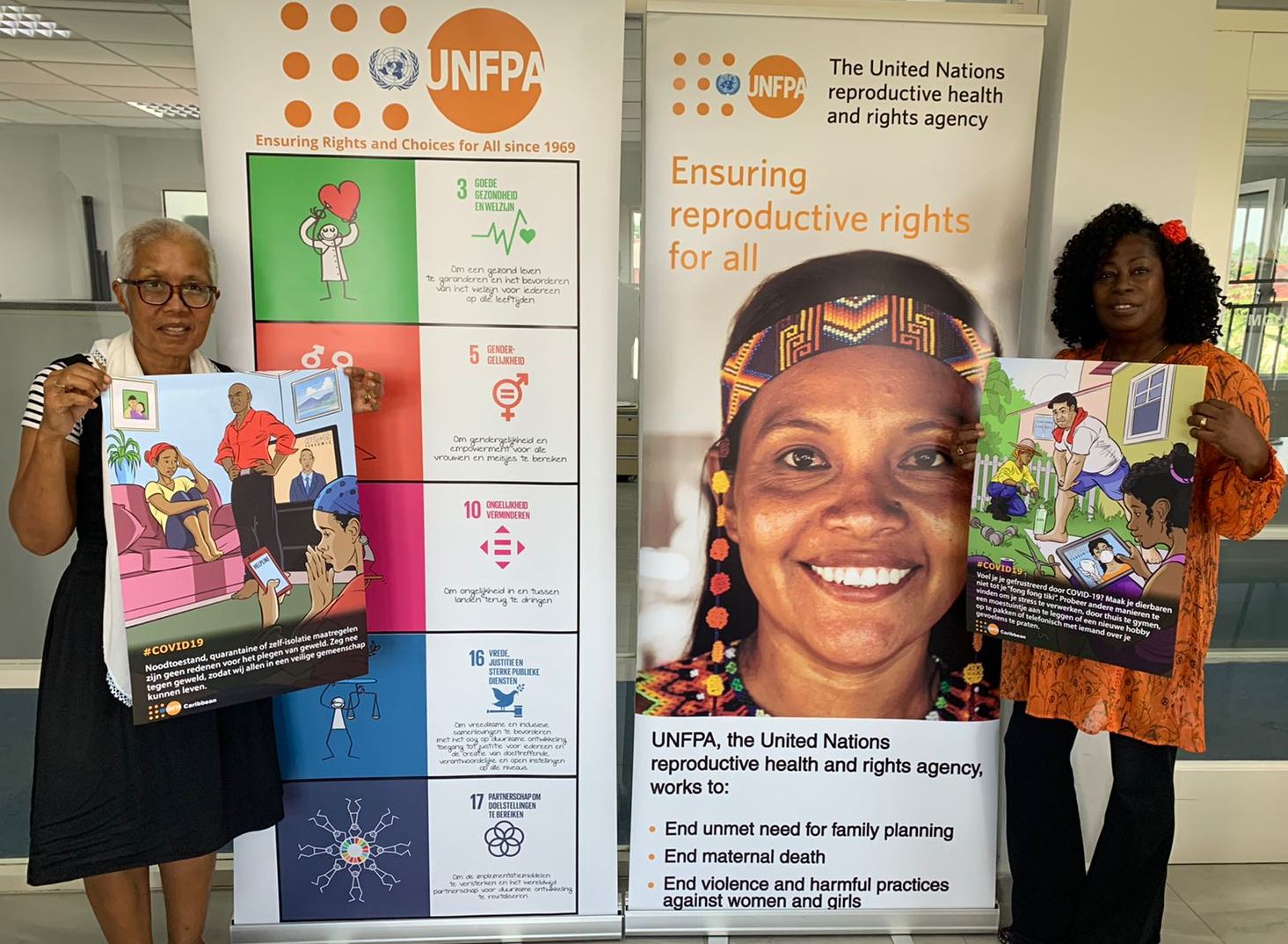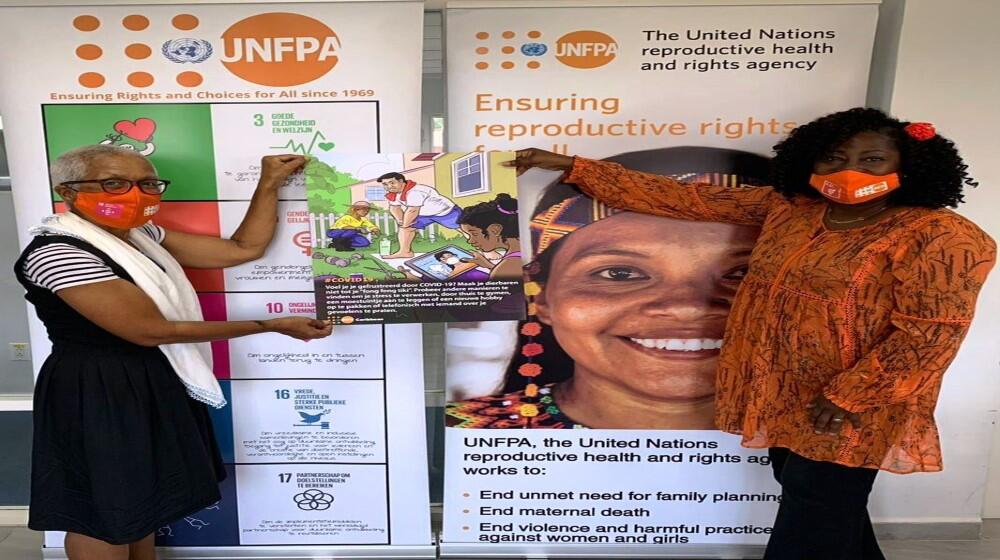Together with the Ministry of Home affairs, the United Nation Population Fund (UNFPA) has been working on issues related to Population, Gender based violence and reduction of inequality. This resulted in the Population Policy for Suriname and a combined effort to tackle gender related issues.
In the light of this partnership UNFPA and representatives of the Ministry of Home Affairs met to discuss the progress made and the way forward. UNFPA took this opportunity to also share information on their activities in relation to the annual campaign, 16 days of activism that kicks off on 25 November, the International Day for the Elimination of Violence against Women, and runs until 10 December, Human Rights Day. It is used as an organizing strategy by individuals and organizations around the world to call for the prevention and elimination of violence against women and girls. Starting on November 25 till December 10, governments, Civil society, advocates and other individuals around the world take a stand on The prevention of Gender based violence with the 16 days of activism campaign.
Over the past few years progress has been made in creating awareness in regards to ending Gender Based Violence. Unfortunately the COVID-19 pandemic has been decreasing the progress made. To prepare for the 16 days of activism UNFPA handed over posters addressing Gender Based Violence during the COVID-19 pandemic on Wednesday, November 3, 2021. During the 16 days of activism UNFPA requested support from the Bureau of Gender Affairs ressorting under the Ministry of Home Affairs for the distribution of the poster to other organizations working in the field of preventing Gender Based Violence. To ensure the information on these posters was understandable it was localized for the Surinamese community. Therefore the posters were created in Dutch as Suriname is part of the Dutch-speaking Caribbean, and Dutch is the official language of the country.



